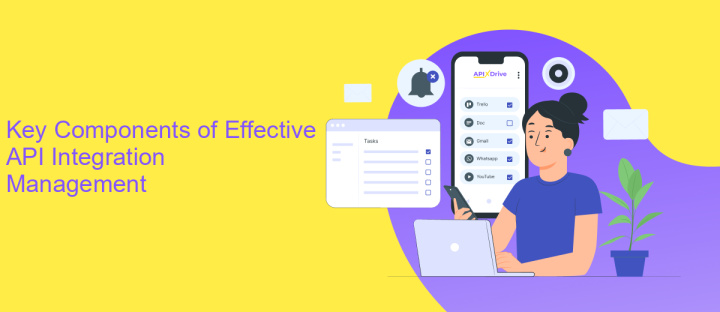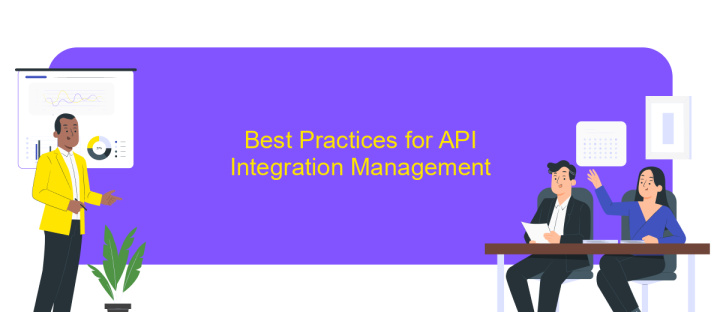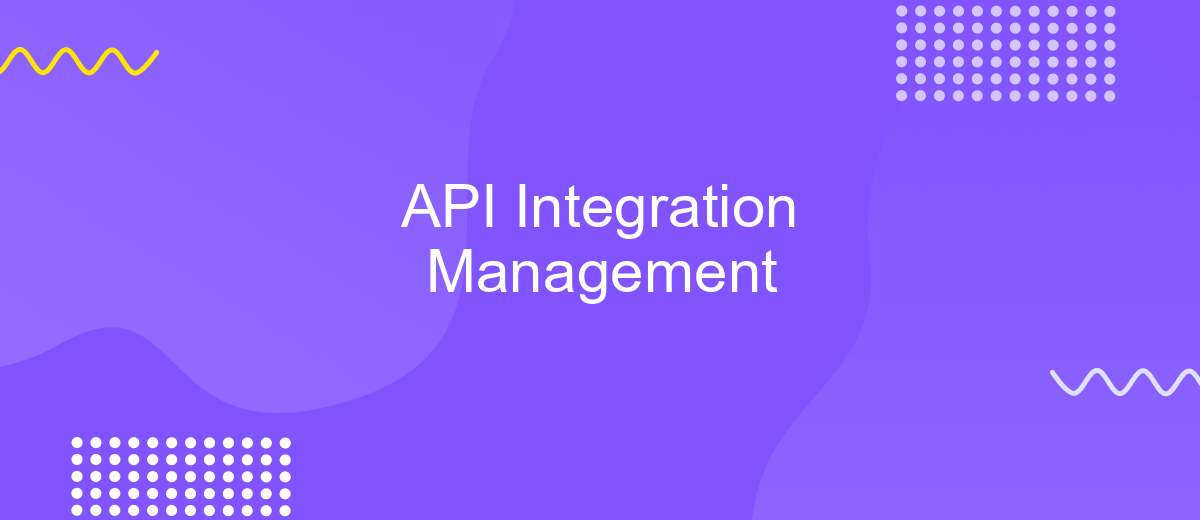API Integration Management
In today's digital landscape, API integration management plays a crucial role in streamlining communication between diverse software systems. By effectively managing APIs, businesses can enhance interoperability, improve data exchange, and boost operational efficiency. This article explores the fundamental principles of API integration management, highlighting its significance in fostering innovation and driving business growth in an increasingly connected world. Discover how strategic API management can transform your organization's technological ecosystem.
Understanding API Integration Management
API Integration Management is a critical component in modern software development, enabling disparate systems and applications to communicate seamlessly. This process involves the strategic planning, execution, and oversight of APIs to ensure they function optimally and securely. By managing API integrations effectively, businesses can leverage existing technologies to enhance functionality, improve user experiences, and streamline operations.
- Centralized control of API interactions for consistency and reliability.
- Monitoring and analytics to track performance and usage patterns.
- Security measures to protect sensitive data and prevent unauthorized access.
- Scalability to accommodate growing data and user demands.
- Documentation and support for developers to ease integration processes.
Effective API Integration Management enables organizations to adapt swiftly to technological advancements and market demands. By ensuring APIs are well-managed, businesses can reduce development time, minimize errors, and foster innovation. This approach not only enhances operational efficiency but also provides a competitive edge by allowing companies to offer more dynamic and responsive digital solutions.
Key Components of Effective API Integration Management

Effective API integration management hinges on several key components, starting with robust security protocols. Ensuring data protection through encryption and authentication mechanisms is crucial to safeguard sensitive information during API transactions. Additionally, comprehensive documentation and clear guidelines facilitate seamless integration by providing developers with the necessary insights and instructions to implement APIs efficiently. This not only enhances the development process but also reduces errors and downtime.
Another vital component is the use of integration platforms like ApiX-Drive, which streamline the process by offering user-friendly interfaces and automation capabilities. These platforms enable businesses to connect various applications effortlessly, minimizing the need for extensive coding. Monitoring and analytics tools are also essential, as they provide real-time insights into API performance, helping identify issues promptly and optimize operations. By leveraging these components, organizations can achieve a more agile and responsive integration process, ultimately driving innovation and operational efficiency.
Best Practices for API Integration Management

Effective API integration management is crucial for ensuring seamless communication between different software systems. To achieve optimal results, it is essential to follow best practices that enhance reliability, security, and performance. By adhering to these guidelines, organizations can maximize the benefits of their API integrations and minimize potential disruptions.
- Ensure comprehensive documentation: Provide clear and detailed documentation for your APIs to facilitate easy understanding and implementation by developers.
- Implement robust security measures: Use authentication and encryption protocols to protect data and prevent unauthorized access.
- Monitor and analyze API usage: Regularly track API performance and usage metrics to identify and address any issues proactively.
- Maintain version control: Clearly define versioning strategies to manage changes and updates without disrupting existing integrations.
- Optimize for scalability: Design APIs to handle increasing loads and ensure they can scale with growing demand.
By following these best practices, organizations can create a resilient API ecosystem that supports business growth and innovation. Consistent monitoring and proactive management of APIs will not only improve operational efficiency but also enhance the overall user experience. Embracing these strategies will position businesses to effectively leverage technology in a rapidly evolving digital landscape.
Challenges and Solutions in API Integration Management

API integration management presents several challenges that organizations must address to ensure seamless connectivity and functionality. One major issue is the complexity of integrating diverse APIs from multiple sources, which often have varying standards and protocols. This complexity can lead to increased development time and potential errors.
Another significant challenge is ensuring the security and privacy of data exchanged through APIs. With cyber threats on the rise, maintaining robust security measures is crucial to protect sensitive information and prevent unauthorized access. Additionally, managing API performance and reliability is essential to avoid downtime and ensure a smooth user experience.
- Implement standardized API protocols to streamline integration processes.
- Utilize API gateways for enhanced security and monitoring capabilities.
- Adopt robust authentication and authorization mechanisms to safeguard data.
- Employ performance monitoring tools to ensure API reliability and uptime.
By addressing these challenges with strategic solutions, organizations can optimize their API integration efforts. This not only enhances operational efficiency but also fosters innovation by enabling seamless connectivity between different systems and platforms. Ultimately, effective API integration management is key to unlocking the full potential of digital ecosystems.
- Automate the work of an online store or landing
- Empower through integration
- Don't spend money on programmers and integrators
- Save time by automating routine tasks
Future Trends in API Integration Management
The future of API integration management is poised for transformative advancements, driven by the increasing demand for seamless connectivity and automation across digital ecosystems. As businesses strive for more efficient workflows, the adoption of AI and machine learning will play a pivotal role in enhancing API capabilities. These technologies will enable predictive analytics and automated decision-making, thus streamlining integration processes and reducing manual intervention. Additionally, the emphasis on real-time data exchange will continue to grow, necessitating APIs that can handle high volumes of data with low latency and robust security measures.
Furthermore, the rise of no-code and low-code platforms like ApiX-Drive will democratize API integration, allowing non-technical users to create and manage integrations with minimal effort. This trend will empower organizations to rapidly adapt to changing business needs without extensive IT involvement. As the landscape evolves, interoperability and standardization will become crucial, ensuring that diverse systems can communicate effectively. Overall, the future will see API integration management becoming more accessible, intelligent, and secure, thereby driving innovation and efficiency across industries.
FAQ
What is API Integration Management?
How can API Integration Management benefit my business?
What are the common challenges in API Integration Management?
How can I simplify API integrations without extensive coding knowledge?
What should I consider when choosing an API integration platform?
Time is the most valuable resource for business today. Almost half of it is wasted on routine tasks. Your employees are constantly forced to perform monotonous tasks that are difficult to classify as important and specialized. You can leave everything as it is by hiring additional employees, or you can automate most of the business processes using the ApiX-Drive online connector to get rid of unnecessary time and money expenses once and for all. The choice is yours!


